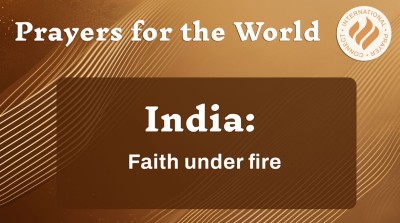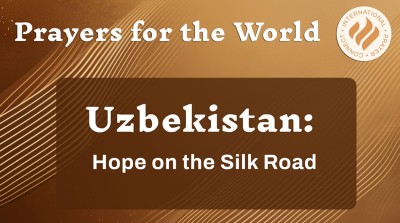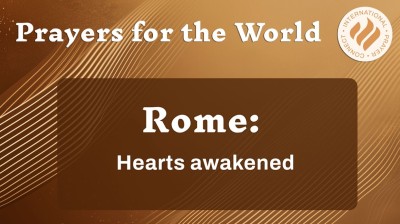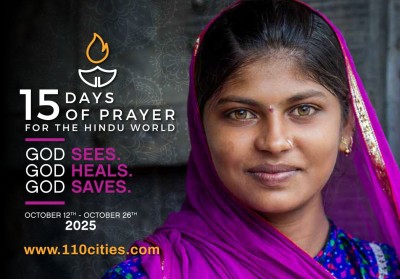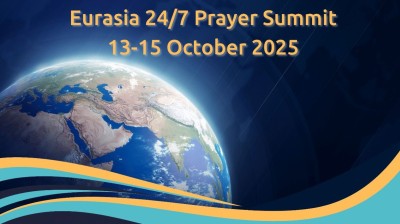Twenty pastors and local Christians were brutally attacked in Kotamateru village, Odisha, while holding a Christian seed-blessing ceremony. The tradition in the region calls for a ritual chicken sacrifice to bless crops, but the eleven Christian families chose a Christ-centered approach instead. Pastors from neighbouring villages were invited to bless the seeds and share fellowship.
The group received verbal assurance from police that their gathering would be safe. After completing worship, prayer, and fellowship, the pastors departed together. As they travelled past a large neem tree, villagers ambushed them with sticks, axes, spades, and knives. Ten Christians were hospitalized with serious injuries, including deep head wounds. One elderly victim, Sukra Madi, was so severely beaten that he collapsed, bleeding heavily, and now requires surgery he cannot afford.
Despite repeated calls to local authorities during the assault, the attackers ignored orders to disperse, demonstrating the Christians’ vulnerability in a remote area. The pastors did not retaliate with violence, trusting in God’s call to love and endure. This reflects the teaching of Christ, who instructed His followers to turn the other cheek and leave vengeance to Him.
After the attack, police pressured the victims into a “compromise” settlement, a tactic repeated in previous assaults on Christians in this village since 2014. The settlement has left the victims discouraged and seeking God’s intervention. Local Christian groups organized peaceful protests, drawing thousands, yet legal justice remains delayed.
The attack highlights the ongoing spiritual and physical challenges faced by believers in regions where the gospel meets opposition. Amid fear, suffering, and uncertainty, these Christians remain steadfast, praying for healing, protection, and courage to continue serving God in their communities. Their faith demonstrates the enduring power of Christ to comfort and strengthen even in the face of persecution.
This story reminds believers worldwide that following Jesus may involve suffering, but God’s presence offers peace, healing, and hope beyond immediate circumstances. Christians are called to intercede for those in danger, support fellow believers, and trust in God’s justice and providence.
Prayer Pointers
- Pray: for healing and restoration for the injured pastors that God would restore their health and strengthen their faith.
- Pray: for protection and courage for Christians facing hostility for them to trust God to shield them from harm and fear.
- Pray: for God’s justice and peace that authorities will act rightly and victims find hope in His timing.
Prayer – For the church in Odisha
Lord, protect and heal Your children who suffer for Your name. Strengthen their hearts, grant peace, and bring justice according to Your will. May Your presence comfort them and renew hope amidst trials. Amen.
"The Lord is my refuge and my fortress, my God, in whom I trust." Psalm 91:2
More: https://christiannews.net/2025/07/29/pastors-and-other-christians-brutalized-in-odisha-state-india/
In Uzbekistan, where Christians make up less than 0.3% of the population, a quiet revival is taking shape. Along the ancient Silk Road city of Bukhara, once a hub of Islamic scholarship, house churches are emerging, led by young believers unashamed to follow Jesus.
Recent reforms under President Shavkat Mirziyoyev have introduced a measure of religious openness, making it possible for churches to register and for Christians to gather with less fear. This shift is providing fertile soil for the Gospel, as more people encounter Christ in deeply personal ways.
Mission Eurasia’s School Without Walls is helping to fuel this movement. Rather than traditional classrooms, it’s a network of discipleship, training young believers in evangelism, family life, and practical Christian living. These leaders gather in homes, share meals, and testify of Christ’s work in their lives. Music, hospitality, and shared tea often open the first door to the Gospel for their Muslim neighbours.
Stories of miraculous encounters with Jesus are spreading. Many Muslims report dreams where they see Christ, His pierced hands extended in invitation. Physical healings are also drawing hearts to faith, as believers pray boldly for the sick and witness God’s power.
In mountain villages, believers trek miles over rough terrain to worship in small, multi-ethnic gatherings of Uzbeks, Tajiks, Kazakhs, Russians, and South Koreans, a living picture of the global Body of Christ. Slowly but steadily, the Gospel is advancing along the Silk Road, once known for trade and scholarship, now becoming a path for spiritual renewal.
The rise of the church in Uzbekistan is a quiet yet profound testimony - in a land long marked by Islamic tradition and Soviet repression, the light of Christ cannot be hidden.
Prayer Pointers
- Pray: for boldness among new believers. Ask God to strengthen young Christians in Uzbekistan to share the Gospel courageously, even when facing misunderstanding, opposition, or rejection.
- Pray: for dreams and visions of Jesus. Ask the Holy Spirit to reveal Jesus through dreams and visions, especially to Muslims seeking truth, leading many into salvation and discipleship
- Pray: or spiritual growth and discipleship. Pray for godly mentors and biblical teaching to help new believers mature in Christ and rise as courageous leaders in their communities.
Prayer – For the Rising church
Lord Jesus, bless the rising church in Uzbekistan. Strengthen young believers with courage and wisdom. Open more hearts through dreams, healings, and hospitality. Protect house churches and let Your light spread along the ancient Silk Road, drawing many to salvation.
"After they prayed, the place where they were meeting was shaken. And they were all filled with the Holy Spirit and spoke the word of God boldly." Acts 4:31
More: https://cbn.com/video/shows/christian-world-news-church-growing-islamic-stronghold-august-1
Under the fading light of a Roman sunset, the sprawling space of Tor Vergata filled with hundreds of thousands of young pilgrims. They gathered for the Jubilee of Youth’s pre-vigil, an evening rich with prayer, music, and testimonies—voices from many nations and languages joining together in hope and faith.
Among this vast crowd were three young believers whose stories of rediscovery and transformation offered a glimpse of God’s quiet, powerful work in human hearts.
Antoine Saint-Claire, 18, from France, grew up in a faithful Christian family where Mass and sacraments were familiar, though his faith felt routine. Watching peers who prayed with passion and intimacy stirred a yearning within him. On a pilgrimage to Lourdes, during a moment of adoration before the Eucharist, he experienced a profound encounter with Christ’s love. “I now know I am loved,” Antoine shared, “and I want to love in return with all I am.”
Gustavo Eterno, from Brazil’s Shalom Catholic Community, recounted a journey from emptiness to renewed joy. Music, once a personal refuge, lost its meaning as he drifted away from God, leaving him disoriented. Then, in Eucharistic adoration, he found the love he had been seeking. Now a seminarian, Gustavo dedicates his life to praising the Lord and guiding others toward that same joy.
 Olimpia Iacono, a young Italian physician, described how her vocation deepened beyond her medical calling. A mission trip to Argentina and her care for a terminally ill patient revealed the universal Christian call to love. In the patient’s hospital room, she witnessed suffering transformed into grace, demonstrating how simple acts of compassion reflect God’s love.
Olimpia Iacono, a young Italian physician, described how her vocation deepened beyond her medical calling. A mission trip to Argentina and her care for a terminally ill patient revealed the universal Christian call to love. In the patient’s hospital room, she witnessed suffering transformed into grace, demonstrating how simple acts of compassion reflect God’s love.
Though different in culture and experience, these stories converge in a shared truth: when hearts open to God, routine transforms into encounter, sorrow becomes song, and love flows outward, touching a world in need of hope.
Their testimonies remind us that faith is not a distant ideal but a living reality of God’s love stirring in everyday lives, calling each person to respond. In a world often marked by uncertainty, their hope shines as a quiet but persistent light.
See the Festival of Unity and Hope livestream here
Prayer Pointers:
- Pray: for young believers to personally encounter Christ and live boldly in their faith amid today’s challenges.
- Pray: and ask God to use music, testimonies, and acts of love to draw many into His presence and joy.
- Pray: that Christ’s love overflows through simple acts of kindness, bringing hope and healing to hurting hearts.
Prayer for the Pilgrims of Hope
Lord God, thank You for awakening faith in young hearts. Let their lives radiate Your love, comfort the broken, and inspire a world in need of hope. Draw many to know and follow You through their witness. Amen
“You will seek me and find me when you seek me with all your heart.” — Jeremiah 29:13
More: https://www.vaticannews.va/en/vatican-city/news/2025-08/pre-vigil-jubilee-youth-testimonies-young-pilgrims-tor-vergata.html
Join Us for 15 Days of Prayer for the Hindu World (12–26 October 2025)
“Declare His glory among the nations, His wonders among all peoples.” (Psalm 96:3)
We warmly invite you, your family, and your church to join International Prayer Connect for 15 Days of Prayer for the Hindu World, from 12–26 October 2025. Together, let’s stand in prayer for over 1.2 billion Hindus, many of whom have never heard the Good News of Jesus Christ.
This special prayer initiative surrounds Diwali, the Hindu “Festival of Lights”- a time when hearts are open to spiritual conversations and new beginnings. As Hindus celebrate light triumphing over darkness, we believe this is a prophetic moment to pray that many will discover Jesus, the true Light of the World (John 8:12).
We’re excited to announce that adult and children’s prayer guides have been prepared in over 30 languages and are available at 110cities.com. These guides feature powerful testimonies - like miraculous healings that led entire villages to Christ - alongside fascinating facts, cultural insights, and profiles of cities where significant unreached Hindu people groups live. Each day offers focused prayer points and links for further exploration.
This journey culminates on 20th October with a Global Day of Prayer, uniting believers worldwide to intercede for breakthrough among Hindu communities.
“Ask of Me, and I will give You the nations for Your inheritance.” (Psalm 2:8)
Whether you’re a church leader, a family, a youth group, or an individual intercessor, your prayers can open spiritual doors and transform destinies.
Let’s raise our voices together so that every Hindu person may one day hear and respond to the hope found in Jesus Christ.
Join us - and let’s pray for the Hindu world!
More info: https://110cities.com/hinduism/
August 19, 2025
Starts: 00:00 EST | 06:00 CEST | 12:00HRS SGT
Shine! is a 24-hour global celebration of Jesus, hosted by children, families, churches and ministries across every continent. We’re lifting up the name of Jesus and praying for the success of the upcoming “Light of the World” movie – a powerful Gospel film being translated into hundreds of languages.
Light of the World is a beautifully hand-drawn animated film that follows Jesus’ life through the eyes of young John, powerfully sharing the Gospel message of love, hope, and salvation with children and families worldwide.
During Shine!, we’ll be praying for children to know Jesus, boldly share His love, and for the Light of the World movie to impact families and nations with the Gospel. Watch the Trailer!
Continuous online Zoom sessions and offline local gatherings will blend worship, intercession, creativity and child-led passion. Children will pray boldly, worship joyfully, and share Jesus faithfully!
"Don’t let anyone look down on you because you are young..." – 1 Timothy 4:12
You can join an hour online or lead your own gathering at home or church using our free Shine! Small Group Pack. Let’s raise a wave of worship and intercession that covers the earth - through the voices of the next generation!
More info, Resources and Sign-up
www.2bc.world/shine
Join the Eurasia 24/7 Prayer Summit – Called to the Wall!
13-15 October 2025 (Optional Prayer Journey on 16th) - Island of Malta
Across Europe and the Middle East, there’s a rising sense of urgency and hope. The spiritual heritage of these lands runs deep, and many believe we are standing on the threshold of a great awakening.
In this pivotal hour, Jericho Walls International Prayer Network and IPC warmly invite you to the Eurasia 24/7 Prayer Summit, taking place 13–15 October 2025 on the beautiful island of Malta.
The summit’s theme, “Called to the Wall,” echoes the powerful words of Isaiah 62:6-7:
“I have set watchmen on your walls, O Jerusalem; they shall never hold their peace day or night. You who make mention of the Lord, do not keep silent, and give Him no rest till He establishes and till He makes Jerusalem a praise in the earth.”
God is raising up watchmen—men and women who will not rest until Heaven touches Earth in Western Europe, Eastern Europe, and the Middle East. The Eurasia Summit is a gathering for those who carry a burden for prayer for revival in these regions. Leaders from every nation in this vast and diverse part of the world will gather in Malta to celebrate what God is doing and contend for what is yet to come.
This summit is part of a global movement, one of five strategic gatherings around the world, all carrying the same vision: to see 24/7 prayer established in every nation on earth by 2033.
The mission is clear—to encourage, equip, and empower leaders to build unceasing prayer in local churches, cities, and nations.
Whether you are a pastor, prayer leader, intercessor, or simply someone burning with a vision to see God move in your nation, this summit is for you. Let’s unite across borders, languages, and cultures to lift up one sound, one cry, one relentless prayer: “God, have Your way in our nations!”
Watch the video: https://youtu.be/C1_y6nitYfg
Join us in Malta this October. Let’s answer the call to the wall—together.
Click here for details and registration
Enquiries: Maulise Kotze E-mail: This email address is being protected from spambots. You need JavaScript enabled to view it. WhatsApp: +971589853594
An initiative of Jericho Walls International Prayer Network in collaboration with International Prayer Connect and other regional networks
Be part of a global movement of non-stop prayer for every nation on earth! From 1–7 September, believers everywhere will unite in a beautiful expression of day and night prayer, inviting God’s presence into every corner of the world.
Set up a 24-7 Prayer Room in your church, home or school. Whether you host an hour or fill the whole week, your prayers are part of a worldwide cry for transformation.
For 25 years, 24-7 Prayer Rooms have sparked missions, revival, and social change. This September, let’s take it further.
"My name will be great among the nations... In every place incense and pure offerings will be brought to me."
– Malachi 1:11
Download the free guide and register your Prayer Room today.
"A powerful, global perspective of prayer around the world."
“amazing, important, relevant, timely.”
“the cinematography in this film is outstanding”
"more than a documentary..."
The Church was born in a ten day prayer meeting
In Acts chapter one, 120 of the earliest disciples came together in an Upper Room in Jerusalem, devoting themselves constantly to united prayer. After ten days, on the day of Pentecost, the Holy Spirit was poured out.
Miracles, salvation, persecution, generosity, and unusual love and unity: these were the hallmarks of the early church. However, for many Christians, their experience of God today looks nothing like the book of Acts.
10 Days is a feature-length documentary on a global prayer movement based on the Acts 1 prayer meeting, a gathering that takes place simultaneously in hundreds of locations during the ten "Days of Awe" each year. It tells the stories of everyday believers in Pakistan, India, Israel, Uganda, and the United States who are praying like the early church.
What happens when people take vacation time to pray and seek God?
Could it really be that when people pray like the book of Acts, things still happen?
Can extraordinary prayer still change the world?
It's time to see and believe what is possible when ordinary people pray in an extraordinary way.
From September 5-22, we are offering a special pre-release of 10 Days, the new feature-length documentary on the global impacts of extraordinary prayer. After this brief window, the film will be unavailable again until its full release in early 2026.
What is 10 Days?
10 Days is a prayer movement that is observed annually in hundreds of locations around the world. It’s based on the “upper room” prayer meeting described in the book of Acts, chapter 1 – a time of extraordinary prayer that spans 240 hours.
Where can we watch the pre-release?
After signing up to host a Watch Party, an email will be sent with a link to view the film, which will be available from September 5 to 22.
More info and Register: https://www.10daysfilm.com/
